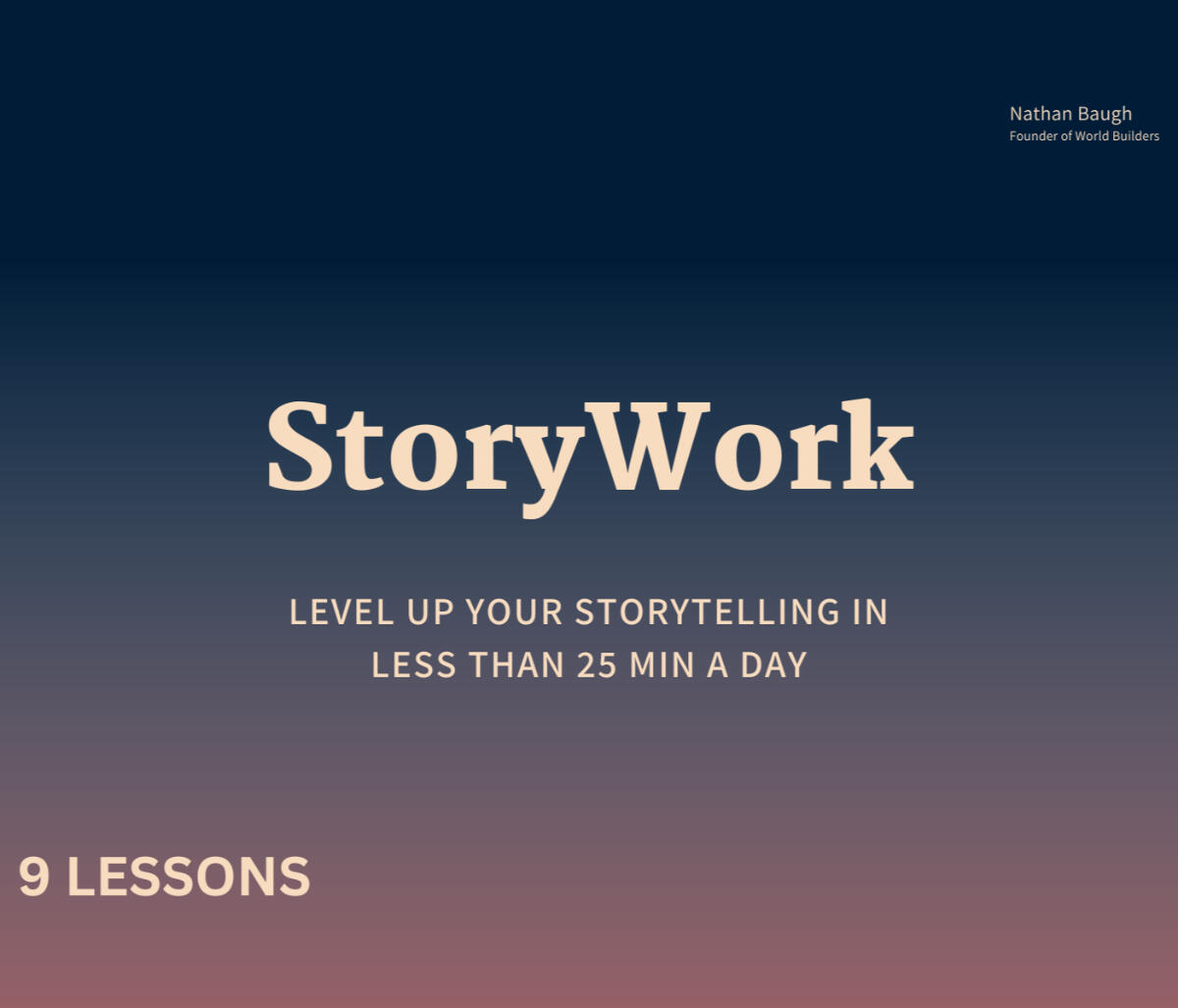- World Builders
- Posts
- The Great Books program
The Great Books program
Nobody wants to read your...
Hey friends,
Appreciate so many of you referring friends and sharing last week’s piece.
Today’s will take you ~3 minutes to read.

One Quote
When you understand that nobody wants to read your shit, you develop empathy. You acquire the skill that is indispensable to all artists and entrepreneurs – the ability to switch back and forth in your imagination from your own point of view as writer / painter / seller to the point of view of your reader / gallery-goer / customer.
I finished Pressfield’s book Nobody Wants to Read Your Sh*t this week. It quickly became one of my favorite books for writing and storytelling.
The core concept?
You gotta keep in mind what’s interesting to your audience, not what’s fun to do as a storyteller. They can be very different.

My 3 big takeaways:
Streamline your message
Make it informative, interesting, or entertaining
Make it painful for someone not to read your stuff
This can be applied to entrepreneurship – I’d read a book called Nobody Wants to Buy Your Sh*t. And I'd bet a lot of the same principles apply.

Two Tactics
1/ Start with the end in mind
Stories, landing pages, fundraising pitches – always start with the end in mind and work backward from there.
You want a clear vision of your desired direction. A few questions to ask:
What does success look like?
Who is your audience?
How might this fail?
Endings are often the hardest part of a story to nail. Get yours working upfront and you’ll be shocked how much easier it makes the rest of the story.
People are working harder than ever, but because they lack clarity and vision, they aren’t getting very far.
2/ Start “when you’re about to get eaten by the bear”
My friend Wes Kao loves this saying. Here's what it means:
We use backstory to provide our audiences with context. But we tend to provide wayyy too much backstory, letting it creep in to engulf the entire story. Instead, aim to provide the minimum amount of backstory possible.
People want to hear the interesting part of your story. Cut the fluff and get right to it. This applies to:
Meetings
Essays
Pitches
And basically everything else.

Three Resources
One Newsletter
Robbie Crabtree writes the Storyteller's Playbook, a new newsletter at the intersection of fundraising and storytelling. Here's a snippet:
I particularly like the line “storytelling is an exercise in structure, clarity, and delivery.”
Structure – how you think
Clarity – what you think
Delivery – how you present what you think
And if you’re wondering what stories investors wanna hear from you, check out this piece from Launch House co-founder Michael Houck.
One Video
George RR Martin – who infamously has not published the next book in the Game of Thrones series – kept trying to get Stephen King to share the secrets of what makes him such a prolific writer.
Turns out there are no secrets.
King writes six pages every day. Most of his manuscripts are about 360 pages, meaning he takes about two months to write a draft. Boring consistency for the win.
One Rabbit Hole
Inspired by @tommycollison, I've embarked on a 5+ year project to read The Great Books at a breakneck (averaged) pace of 1 per week.
My list of books and the order I'm tackling them in, and more on the inspiration for this project, is here:
blog.nateliason.com/p/great-books?…
— Nat Eliason (@nateliason)
10:10 PM • Jul 7, 2022
This tweet from Nat sent me headlong into Tommy Collison’s Great Books list. I don’t usually love the classics (shame on me – it’s a carryover from middle school literature classes).
But ideas that survive decades and centuries are more valuable than what is simply popular today. (or, at least, I tell myself that as I slog through Descartes)
Here’s Tommy’s entire Great Books program. He split it into four sections, totaling ~150 books:
antiquity
Middle Ages
Enlightenment
modernity
If you wanna be a great storyteller, why not start with stories that have survived the filter of centuries?

A message from... Me!
The interest in this tweet blew me away...
One way to become a better storyteller:
Take your two favorite authors. I recommend one non-fiction and one fiction.
Copy, word for word, their best work. Do it by hand.
I chose Paul Kalanithi and Neil Gaiman.
It’s the single exercise that improved my writing the most.
— Nathan Baugh 🗺️ (@nathanbaugh27)
3:06 PM • Jan 5, 2023
In my experience, there are two ways to get good at storytelling:
Study the greats (what this newsletter is for)
Practice, practice, practice
I do a lot of practice through StoryWork.
And so many of you liked, commented, and sent me DMs about the practice I decided to turn it into a guided course for you.
Check it out:

I hope you enjoyed that. If so, check the referral program below and bring on some new World Builders. I'll send you the guide I put together. It's 10 pages of frameworks and resources to make you a better storyteller.
See you next week,
Nathan
What'd you think of today's newsletter? |

